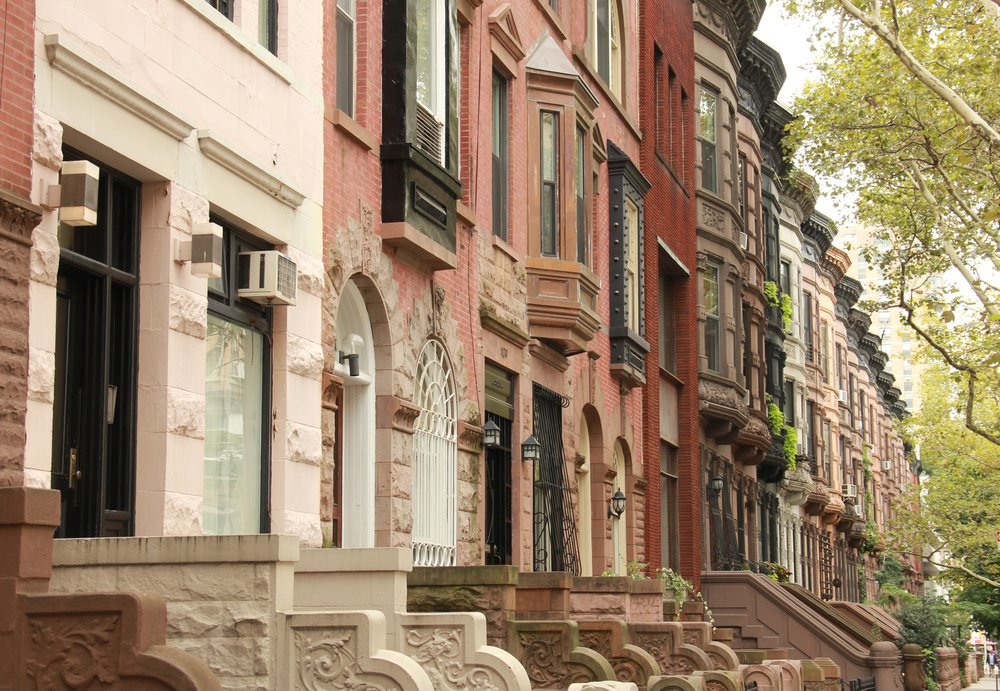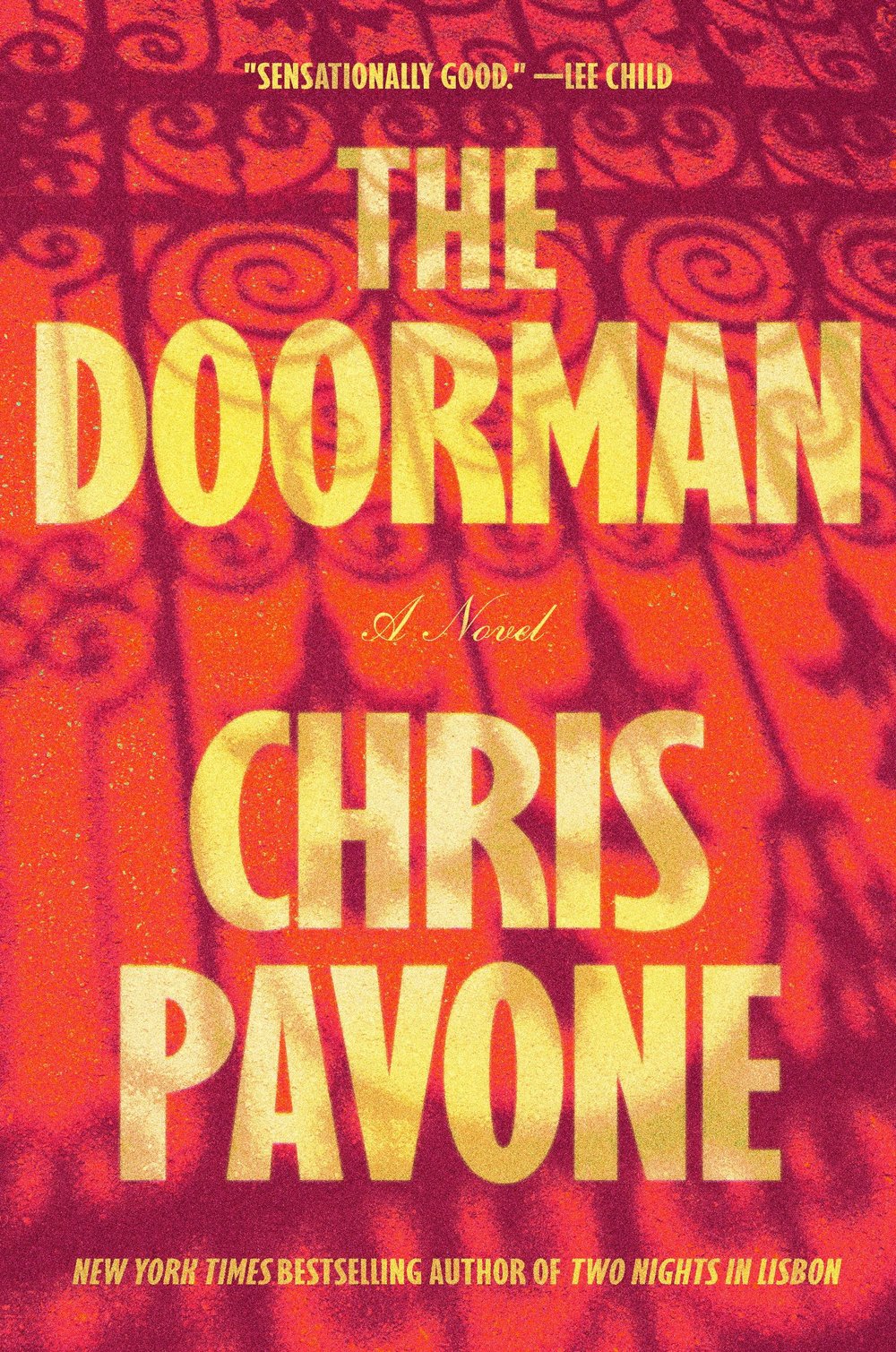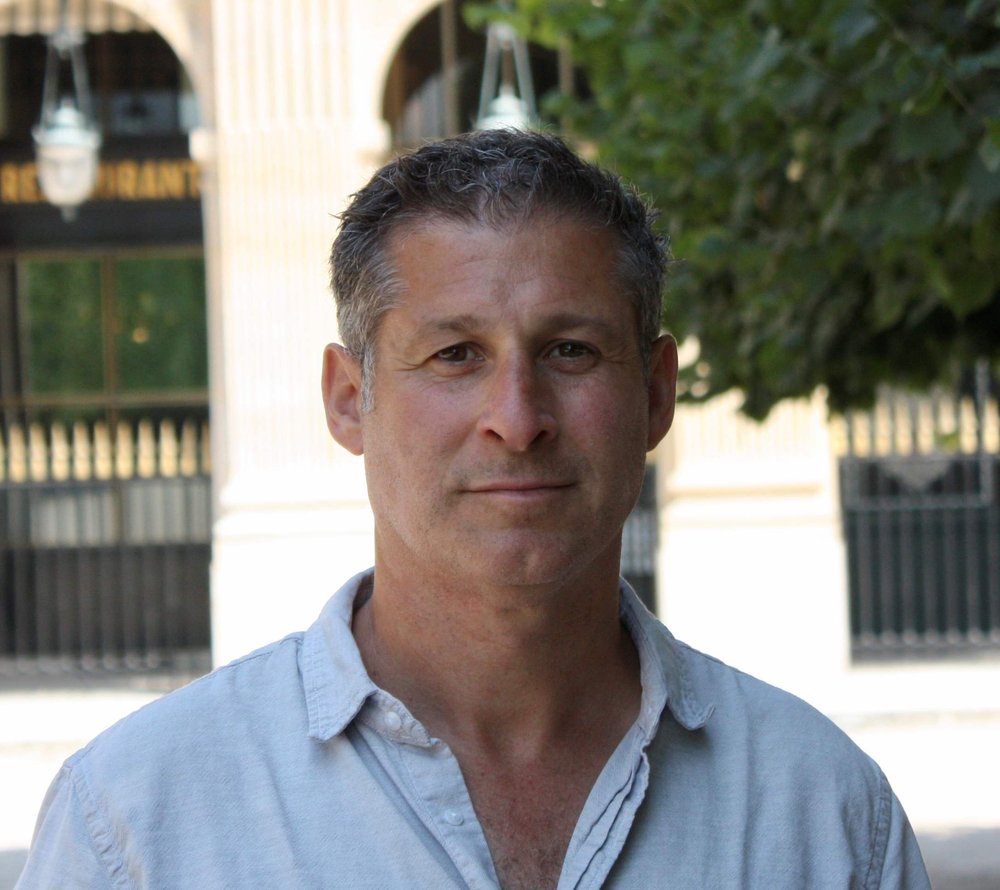A new NYC thriller examines wealth and privilege on the UWS
May 23, 2025, 10 a.m.
Bestselling author and Upper West Side resident Chris Pavone turns his gaze a little closer to home.

Bestselling author Chris Pavone writes thrillers set in exotic places: Paris, Zurich, Lisbon. His latest novel, “The Doorman,” is set a little closer to home, in a fictional co-op building on Central Park West named the Bohemia.
It's inhabited by the uber-wealthy and staffed mostly by people of color. There are secrets and lies – and overseeing it all is the building's doorman, who gets “caught up in a web of adultery, robbery and murder,” said Pavone.
Pavone talked to WNYC’s Alison Stewart on a recent episode of “All of It” about privilege, income inequality and “The Bonfire of the Vanities.” Below is an edited version of their conversation.
Alison Stewart: Why did you want to center your novel around a doorman?
Chris Pavone: I wanted to take a look at this upstairs, downstairs environment in New York City. It's always intrigued me, and I think it's a crucial part of the city. Every crowded subway car is a miracle of diversity: every race, ethnicity, age, gender, sexual orientation, tattoos or not, everything. If you're on a crowded subway car, you see all of this humanity all at once.
Many people here also do their best to try to sequester themselves from the rest of humanity. They shuttle themselves around in town cars and live in fortress-like buildings like my own. They don't really interact with that many people who aren't exactly like them, except in this very specific circumstance of the people who live in a building interacting with the people who work there.
I thought that that was a fascinating intersection. It provided a great opportunity to talk about race and racism and class and income inequality and money and its corrupting influence on everything – but in the context of actual relationships among actual people.

How did you look at New York City as a place to set a novel, especially when it's a place where you live?
Well, first of all, I set a novel in New York City during COVID when I wasn't going anywhere. I looked around me and I thought, "Wow." Also, a lot of what I've tried to deliver in those books that are set overseas is not really a trip to Europe. It is really a specificity of place and a sense that readers are going somewhere that they may know a little bit about but aren't completely familiar with.
I love that aspect of myself as a reader of fiction, being introduced to some part of the world that I'm already a little bit interested in but don't know a lot about. I feel like for a lot of people, New York is that. For most people, the Upper West Side of New York City is just as far in as Lisbon.
Why did you set it on the Upper West Side of New York City as opposed to, say, Fifth or Park Avenue?
Well, I live on the Upper West Side. That's part of it, but I also wanted to examine a couple of different religious and cultural differences between the east side and the west side in a way that I think will be familiar to many New Yorkers and perhaps enjoyable.
Also, I took a lot of inspiration from "The Bonfire of the Vanities." I don't remember exactly when I read it, but it was published in the late 1980s. The thing that's on my shelf is a hardcover, so I definitely read it about then.
That is a tremendous book about race and class and money and crime and adultery and murder. It is also pretty outdated in a lot of ways. It's also arguably a sexist book and a racist book and, frankly, an insane book in some ways, but it's still an immensely propulsive and enjoyable read. I wanted to do an updated version of that to try to address a lot of the same things, but with a more contemporary sensibility and with some very important differences.
Let's talk about a couple of the characters. Chicky Diaz. Longtime doorman. He's been there 28 years. How would you describe his relationship with the residents?
Chicky is always happy to be at work. He's always happy to greet all the residents, to greet the neighborhood people and their children and their dogs, and the tourists who never stop taking pictures. Chicky has decided to go forth into the world and try to never take offense and try to meet everybody where they are. Even if where they are is not particularly nice to him, what he tries to do is give back nice in return. Chicky is a very big guy who has decided that he wants to try to make himself be smaller. It's a nonconfrontational way of moving through the world.
Emily Longworth lives in the penthouse. She's married, two kids. She decides she wants a certain way of life even if that means living with her husband, Whit, who's a master of the universe with a really dark side, we shall say. How would you describe her?
Emily thinks of herself as a good liberal. A lot of what I try to address in this book in the background – not as the plot, but always simmering there – is: What does it mean at this moment in time in America to be a liberal?
I think a lot of people disagree very strongly on what that means exactly. Even if they agree on 99% of the issues, the remaining 1% drives them apart. I wanted Emily to be one of those people who finds herself in the position of being accused of being things that she's not, of being affiliated with a man who she didn't choose because of his money, but she happened to end up a very, very rich person. She's trying to move through the world doing good despite being married to somebody who definitely does not.
Did you think about people who would read this book and not take a liking to some of its liberal tone? In fact, I was on Goodreads. Don't go on Goodreads, but there was a MAGA person who had read your book and had a lot to say about it.
Oh yes. [chuckles]. No, I'm not concerned with people hating the book. I'm more interested in making the book extremely enjoyable to people who are willing to like it.

In the novel, Emily writes, there was absolutely no way that she and her children could live on $900,000 per year.
You get used to whatever you get used to. She's somebody who has a couple of kids and travels a lot. They've never been on a commercial flight. Although that's a rare thing, it's not a fictional thing. There are people in the world who are exactly like that. That doesn't make them bad people. That just makes them people with a tremendous amount of money. I think one of the questions is, what is it worth doing for that money?
I think almost all of us have to admit that we have made choices in our lives for money. Once you've made any choice for money, then as the old trope goes, the rest is just a negotiation. Where do you draw the line between what's an acceptable compromise to make for money and what's not?
One of the problems with Whit, Emily's husband, is that he became a billionaire by being a profiteer. I think a lot of us would agree that that's a bad thing to be, but maybe the profiteers wouldn't. Maybe their spouses wouldn't either. That line is up to all of us to draw.
Julian, he's also married. He has two kids. He's an art dealer. He's rich, but he's not rich-rich, so to speak. He's very clear when some crazy racial moments happen during a board meeting. What does he want?
Julian wants to know what his purpose is in this world and what role there is for somebody like him. He has moved through the world on the backbone of privilege, but what he's done with that privilege is set out to right the historical wrong of underrepresentation by Black people in the world of fine arts. He is increasingly finding himself edged out of the business that he invented and wondering, "What am I for?"
Do you have sympathy for all your characters?
I love the three main characters in this book. I love their failings. I love their problems. I love the momentous decisions that they make at the end of this fateful and fatal day that this book takes place in. I don't love all of the minor characters, but I loved writing them.
I think one of the great joys of writing fiction is, in fact, to be able to write about people who you don't like and to do it possibly with sympathy, and I hope also sometimes with humor.
There aren't any spies in this novel, but most of the main characters have some sort of a double life.
Yes.
What makes that compelling to you?
The reason I have written spy fiction to begin with, is not because of the spy versus spy, country versus country, state secrets thing, but because one of the most powerful stories there is, one of the hardest places for a person to find themselves, is in an intimate relationship of any sort – whether it's professional or sexual or marital – where you realize that you can no longer trust your partner and that you have been betrayed.
I think we all live with some type of fear of that. No matter what we do, no matter who we're married to or who we work for, there's always the nagging possibility that you will unlock somebody's phone and discover something you really didn't want to know.
“The Doorman” has sexism. Homophobia. Racism is omnipresent. We get a classic co-op board scene. Did you start out wanting to write about income inequality?
I think that's an essential part of the story I was telling. I set out to write a book about this moment in New York. I think one of the things that makes a New York novel such a compelling piece of literature is that here in New York, we face all of the problems all of the time. They're always right there in front of us. There's no way to ignore them.
The beauty of writing a book about New York is you get to address all of those things, but in the context of characters and story. The politics, whether they're social or political – whatever you want to call the point of view in this story – is not there so that I can stand on a soapbox and yell about what I think.
It's there because these are the things that actually drive the plot. These are the conflicts that put these characters onto these collision paths that all converge at the end, where not all of these people survive.
Before you were a novelist, you were an editor. How does that influence your writing?
I think I am very, very amenable to editing as an ex-editor, but I'm also very, very focused on making sure, at the beginning of the process, that I know what the book is.
I always write a page of description about a book before I start writing the book to make sure that I have the protagonist, I have the antagonist, I have the main conflict. I know the general shape of the story.
It's really just for me to make sure that I know why this book should exist in the world to justify it, because if a book can't be justified, then it doesn't actually belong in the world.
In the acknowledgment sections, you write, "If the impulse ever strikes to drop a kind note to anyone who has created anything, I urge you not to fight it." First of all, when was the last time someone dropped you a note?
It happens all the time. I'm so grateful for it. It's one of the reasons that I do it so much. Social media has created the opportunity for people to tell each other how much they hate each other, especially anonymously. It is also an opportunity to very easily reach out to people and tell them that they created something that you really enjoyed, so I do that all the time.
NYC parents on school WhatsApp group chats: ‘Oh my God, it’s hell’ How safe is Times Square? It depends on who you ask. A first look at the New York Botanical Garden's floral tribute to Vincent Van Gogh